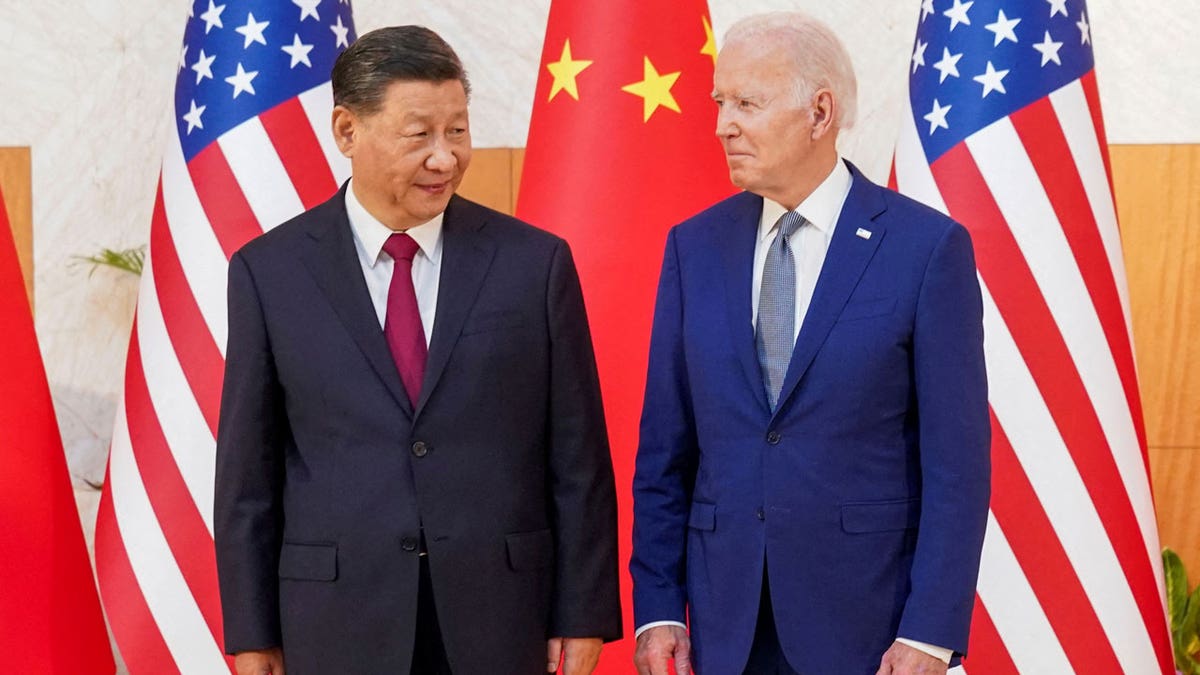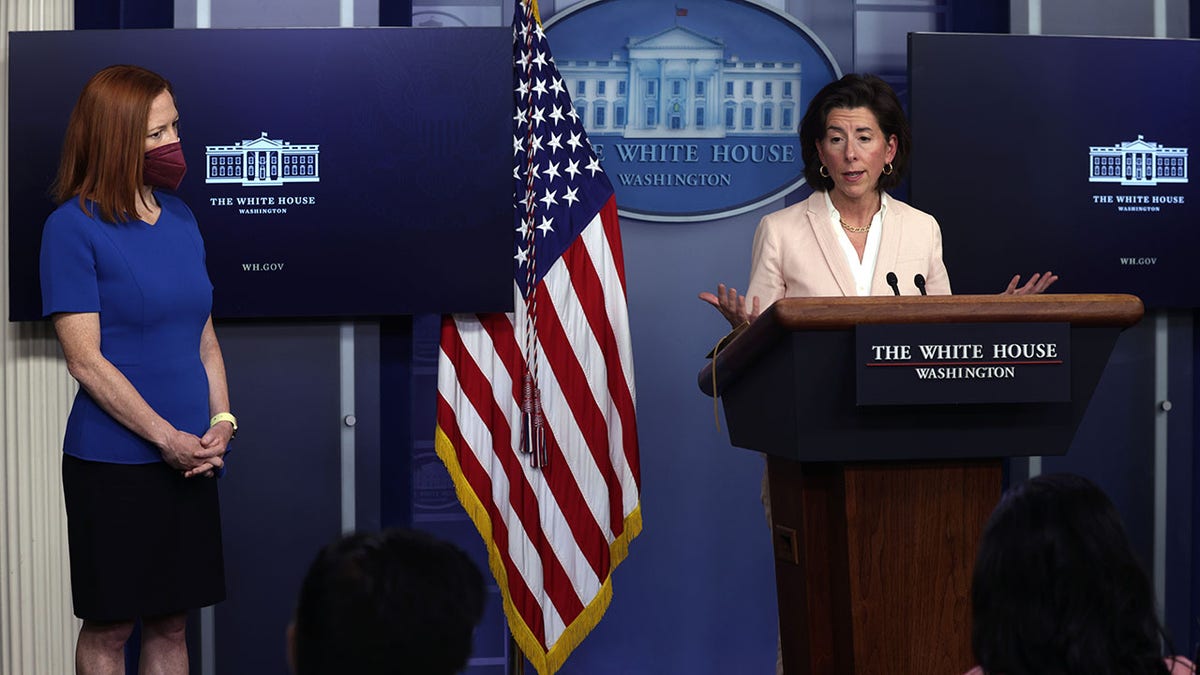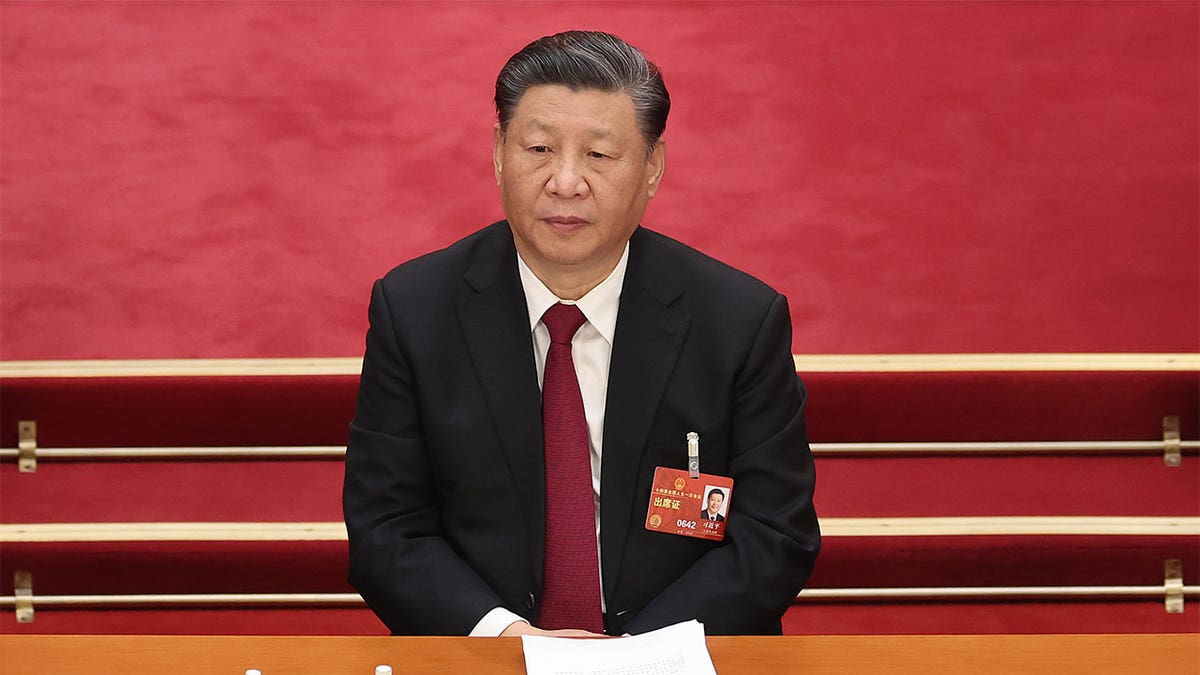A Biden administration push to force cloud companies to disclose when a foreigner uses their platforms to power artificial intelligence could be seen as an escalation in the ongoing tech war between China and the U.S., though experts are split on how effective the strategy will be.
“We need the federal government to take the threat of AI seriously, especially when it comes from malicious foreign actors. This is a good step,” Jon Schweppe, the policy director of the American Principles Project, told Fox News Digital.
Schweppe’s comments come after U.S. Commerce Secretary Gina Raimondo announced that her department could soon require U.S. tech companies to disclose every time a non-U.S. entity uses their cloud to train a large language model, according to a report by Bloomberg.
TAYLOR SWIFT AI-GENERATED EXPLICIT PHOTOS OUTRAGE FANS: ‘PROTECT TAYLOR SWIFT’

President Biden meets with Chinese President Xi Jinping on the sidelines of the G20 leaders summit in Bali, Indonesia, on Nov. 14, 2022. (Reuters/Kevin Lamarque/File)
Though Raimondo didn’t specifically call out any specific firms or countries, the potential move has largely been viewed as a way for the U.S. to maintain a leg up on China in AI technology, with President Biden saying in October that such disclosures could help detect if foreign actors plan to use AI to launch “malicious cyber-enabled activity.”
Ramondo also hinted at similar efforts aimed specifically at China last month, saying in an interview that the U.S. wants to “shut down every avenue that the Chinese could have to get access to our models or to train their own models.”
China’s push toward AI development has become a top concern for the administration, which has in the past tried to combat Beijing’s progress by restricting chip exports to the country and sanctioning some Chinese firms, though the country has continued to make breakthroughs despite the U.S. moves.
Christopher Alexander, the chief analytics officer of Pioneer Development Group, told Fox News Digital that the new proposal demonstrates that the “U.S. government is finally taking the threat of Chinese economic espionage seriously.”
WHAT IS ARTIFICIAL INTELLIGENCE (AI)?
“There is no silver bullet to address the constant theft of intellectual property by the Chinese, but measures like this make the U.S. AI sector more difficult to operate against. The United States simply cannot underwrite Chinese AI efforts because of poor industrial security,” Alexander said. “Ideally, the government will focus more on support over regulation but the scope and nature of this national security threat, along with the incredible opportunity it presents, necessitates a close and fruitful government relationship with the private sector.”
Similar thoughts were echoed by Heritage Foundation Tech Research Policy Center research associate Jake Denton, who told Fox News Digital that the U.S. cannot “let naive assumptions about the universal benefits of progress blind us to the reality that technology empowers its first mover.”

Secretary of Commerce Gina Raimondo speaks during the daily press briefing at the White House. (Alex Wong/Getty Images)
“If China wins the Al race, they could become the dominant world power for generations. We need to wake up and realize this is a Sputnik moment,” Denton said. “America must secure the technologies critical for Al breakthroughs and ensure they serve our national interests. Letting Chinese firms access our chips, our cloud technology and talent is tantamount to unilateral disarmament in a technology cold war.”
But not all experts are convinced that the plan would be effective, with some expressing concerns that it could slow down tech development.
ISRAEL CREATES AI PLATFORM TO TRACK THE HUMANITARIAN SITUATION IN GAZA
“This will absolutely slow technological progress. It adds layers of bureaucracy and reporting that will require developers to meet arbitrary standards set by an uninformed federal government,” Samuel Mangold-Lenett, a staff editor at The Federalist, told Fox News Digital.
But Mangold-Lenett also acknowledged the U.S. needs to prevent foreign adversaries such as China from accessing “critical technologies,” especially when they have a history of “hacking and stealing from us.”
“We ought to allow American developers the freedom to develop robust systems without hindrance while incentivizing as much data security as possible,” he said.
According to the Bloomberg report, it remains unclear just how the U.S. would regulate the tech industry’s dealings with foreigners, especially since exchanges of cloud services are not physical goods and have typically been “beyond the domain of export controls.”

Chinese President Xi Jinping (Lintao Zhang/Getty Images)
CLICK HERE TO GET THE FOX NEWS APP
Meanwhile, U.S. cloud providers have long worried that such restrictions without similar moves by other allied countries could put American companies at a competitive disadvantage.
Phil Siegel, the founder of the Center for Advanced Preparedness and Threat Response Simulation, shared similar concerns, telling Fox News Digital that the move “could cause foreign firms to look for alternatives and shift share out of the U.S. to avoid the reporting requirements.”
“It might also cause regulatory retaliation by other countries which, taken together, could slow overall development and raise costs by providing a price umbrella for Amazon, Microsoft and Google and any foreign competitors,” Siegel said. “Overall, these types of regulations are more onerous than just asking for a one-time KYC (know your customer) type of regulatory regime, which could be uniformly applied, would cause deeper investigation once especially for foreign firms, and allows the cloud companies to have more accountability.”
The White House did not immediately respond to a Fox News Digital request for comment.